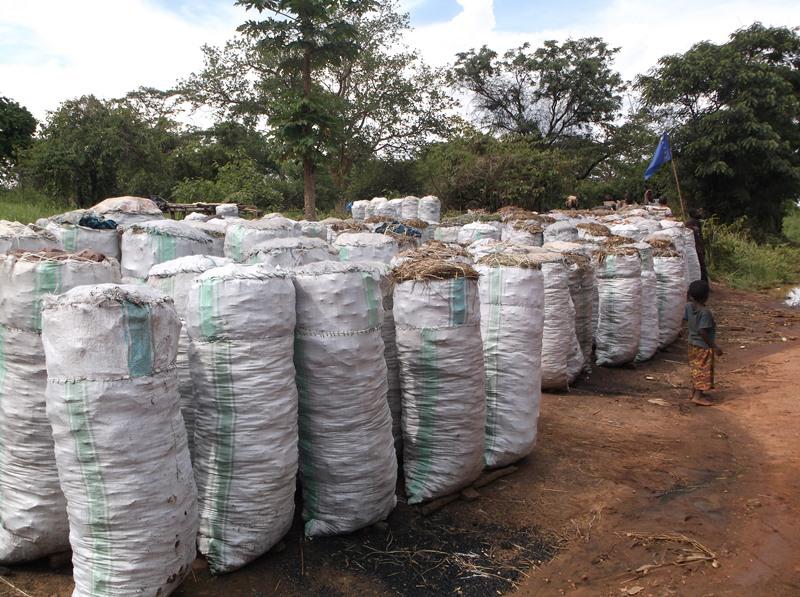Deo Kujirakwinja
Other projects
This project aims at supporting law enforcement in Luama-Kivu to respond to human activities that threaten biodiversity and work with communities to conserve the reserve.

Conficated charcoal.
Biodiversity conservation in DRC is facing serious threats from human activities for resource access and extraction. Although these activities are conducted for subsistence, in-country migration is exacerbating the situation. For example, pastoralists are moving from high populated areas and highland places in South-Kivu province towards other provinces and settle into unoccupied areas including protected areas. This has affected Luama-Kivu Hunting Reserve despite efforts from rangers to intervene. The impact of migration and local use of resources has impacted on both integrity and biodiversity of the reserve. In order to protect key large mammals that are found in the area (elephant, hippopotamus, duikers, etc.) and the only great ape that exists there, the chimpanzee; there is need of supporting law enforcement activities to reduce pressure on biodiversity and work with local community to support conservation and identify key needs that have to be supported as alternatives to sustain their lives.
Law enforcement by itself is not effective and there is need of supplementary approach that can build dialogue and trust between protected area managers and local leaders that include local chiefs.
Apart from reducing threats, this project will increase on patrol coverage, hence increase on the control of the area by the DRCongo wildlife Authority (ICCN). This include not only arrests of poachers and other offenders but also sensitization of offenders encountered. The sensitization will target offenders but also customary leaders as cultural enforcers. These leaders can play an enforcement role through their authority and culture.